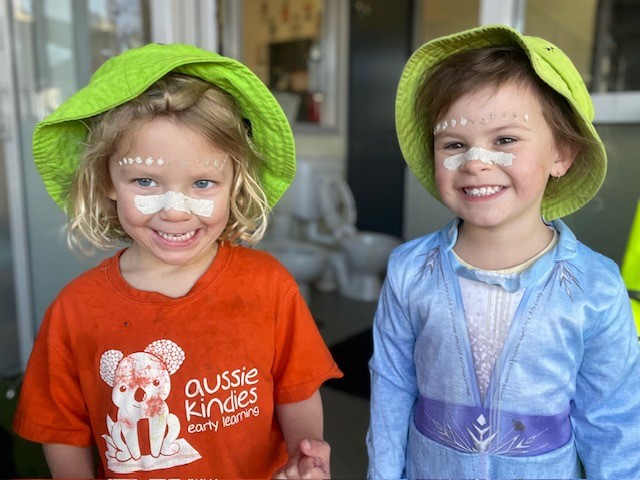
Parent Teacher Interviews provide a valuable one on one opportunity to discuss your child’s learning and development progress in relation to emotional development, social connectivity, foundational learning, and physical health and wellbeing. Your child’s educator will be ready to discuss their Progress Record and work with you to form a goal specific to your child’s learning. This will allow them to implement learning experiences that lead children towards their goals, factoring in their interests too.
To make the most of these meetings, we recommend to approach them with preparation and a positive attitude. Here are some tips to help you communicate effectively with educators during Parent Teacher Interviews.
Prepare in Advance
- Review the Progress Record and any notes from the educator
- Make a list of questions or concerns
- If your child is old enough, ask them about their experiences at Aussie Kindies, including what they enjoy and what challenges they face.
Be Punctual
- Arrive on time. This shows respect for the educator’s schedule and ensures you have the full allocated time for the meeting.
- Keep track of time during the interview to make sure you cover all important points without running over your allocated slot.
Focus on Collaboration
- Enter the meeting with a positive and open mindset, ready to collaborate with the teacher for your child’s benefit.
- Listen to the educators observations and suggestions without interrupting or becoming defensive.
Ask Specific Questions
- Academic performance: “Can you provide specific examples of my child’s strengths and areas for improvement?”
- Classroom behaviour: “How does my child behave in class? Are there any behavioural issues we need to address?”
- Social skills: “How does my child interact with classmates? Do they have friends and get along well with others?”
- Support at home: “How can we support our child’s learning and development at home?”
Listen Actively
- Jot down important points during the discussion to help you remember key information and follow up later if needed.
- Clarify when necessary. If something is unclear, don’t hesitate to ask for clarification. Ensure you fully understand the educator’s feedback and recommendations.
Share Your Insights
- Share any relevant information about your child’s home environment, interests, or challenges that might affect their school experience.
- If you have specific concerns or have noticed changes in your child’s behaviour or attitude towards their early education, discuss these openly.
Focus on Solutions
- Collaboratively set realistic and achievable goals for your child’s academic and personal development.
- Develop a plan with the teacher that includes specific actions you can take at home to support your child’s progress.
- Agree on a method of communication for follow-up, whether it’s through Storypark, phone calls, or future meetings.
Express Gratitude
- Thank the teacher for their hard work and dedication to your child’s education.
- If there are particular aspects of the educator’s approach that you appreciate, be sure to mention them.
Stay Involved
- Maintain ongoing communication with the educator throughout the school year, not just during scheduled interviews.
- Keep track of your child’s progress and stay engaged with their early learning activities and projects.
Effective communication during Parent Teacher Interviews is crucial for supporting your child’s educational journey. By preparing in advance, asking specific questions, and focusing on collaboration, you can make these meetings productive and beneficial for your child’s development. Remember, the goal is to work together with the educator to create a supportive and enriching learning environment for your child.